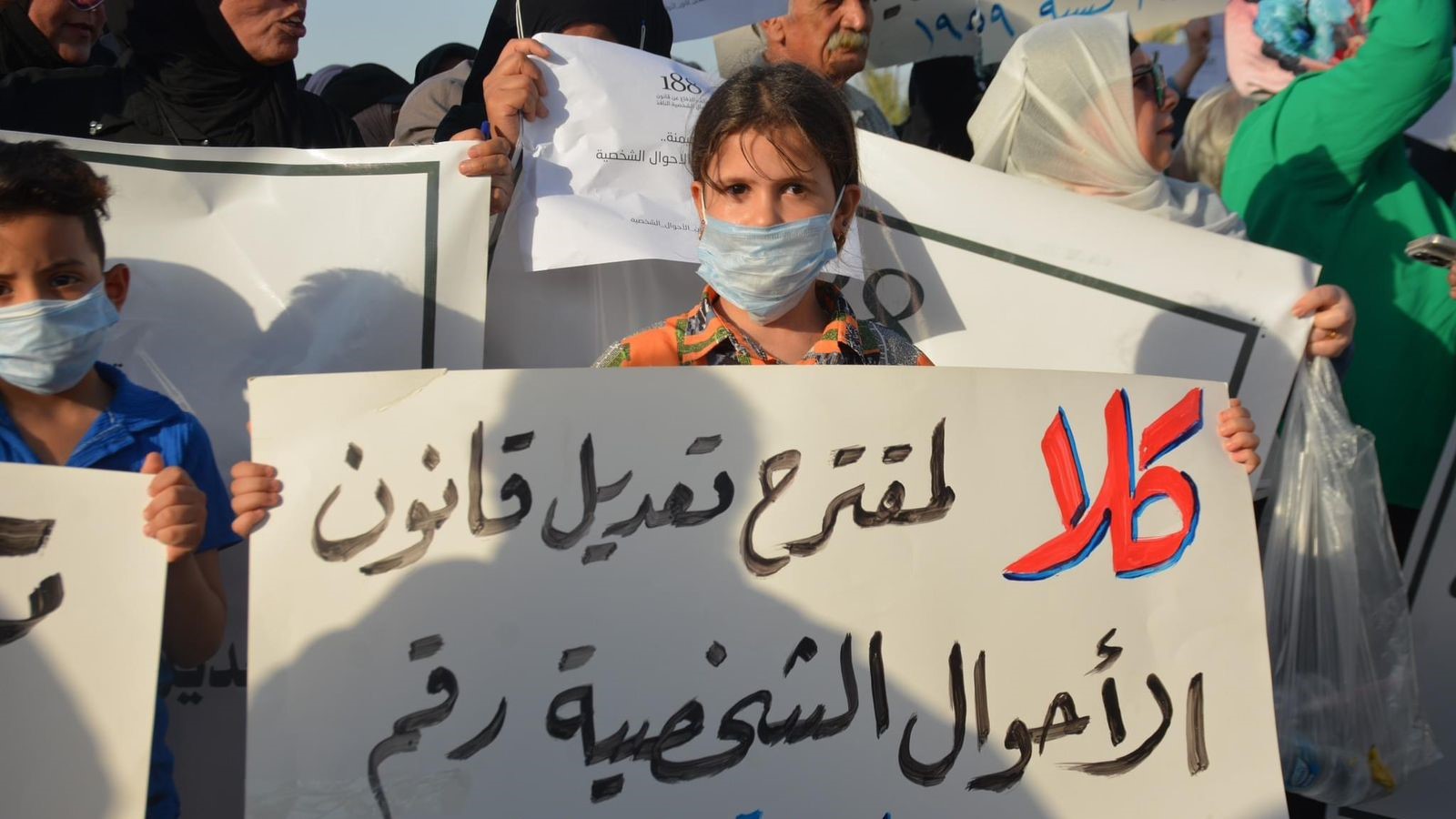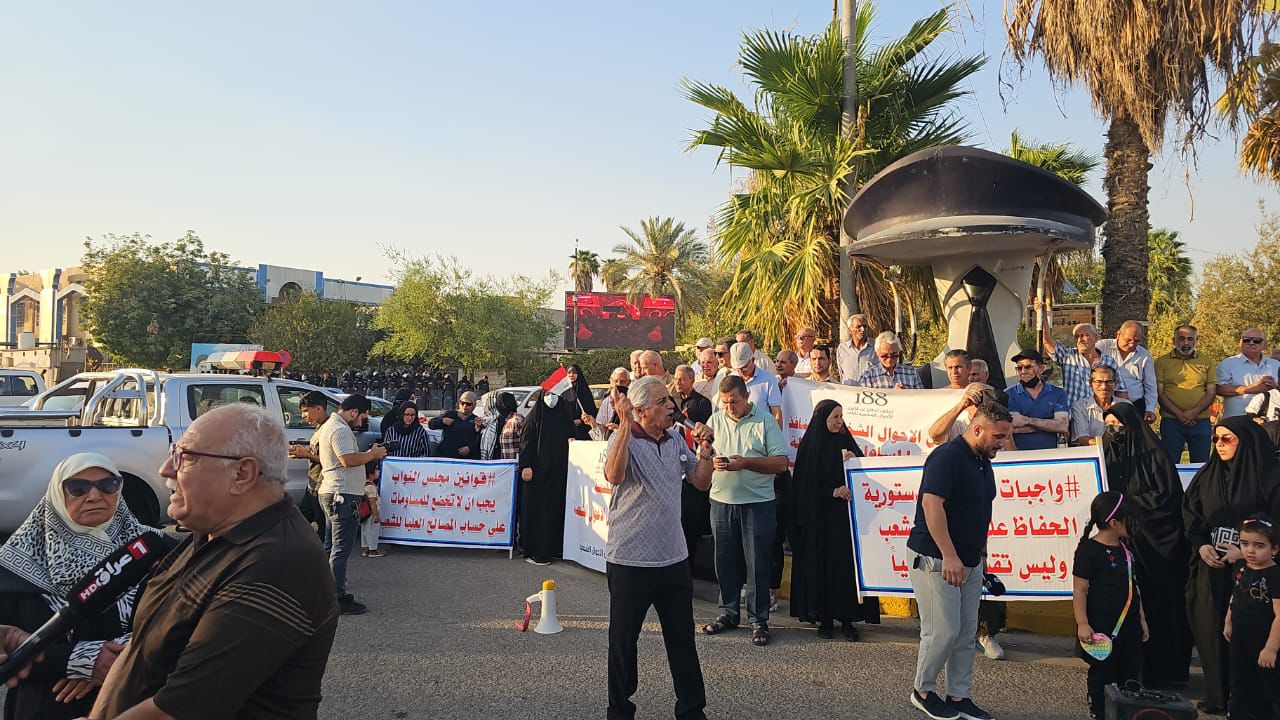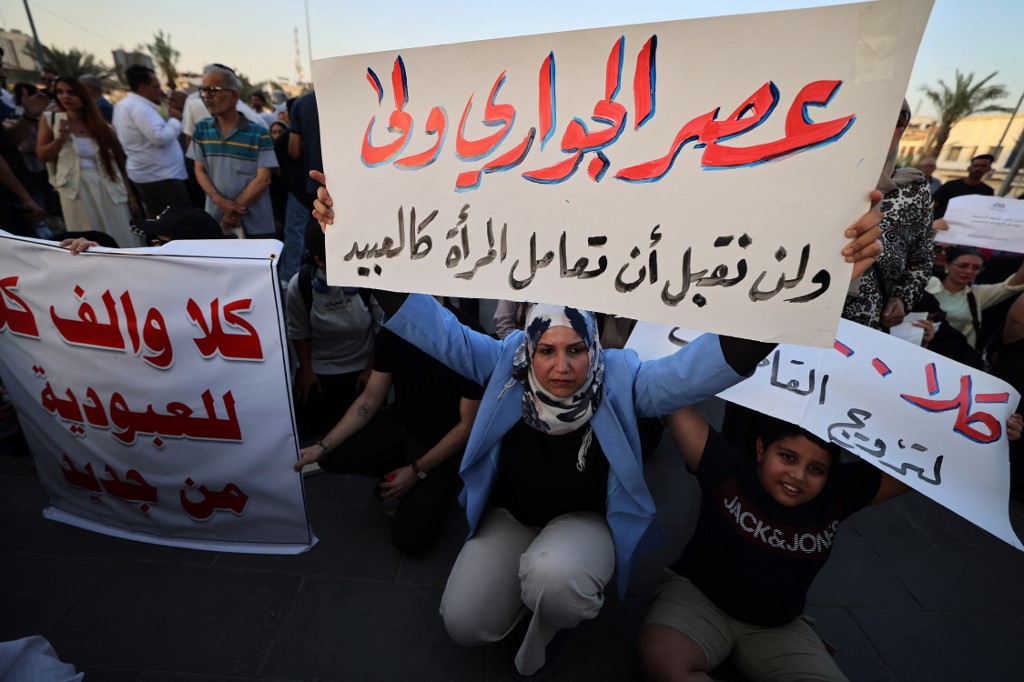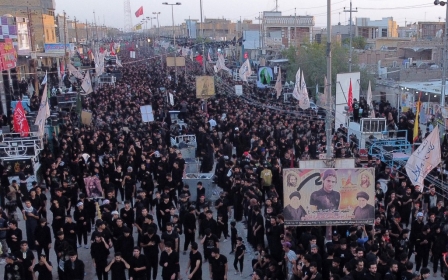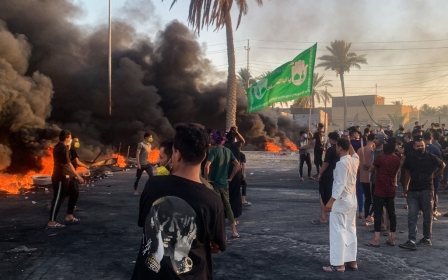Protests across Iraq against 'sectarian' law that may allow child marriage
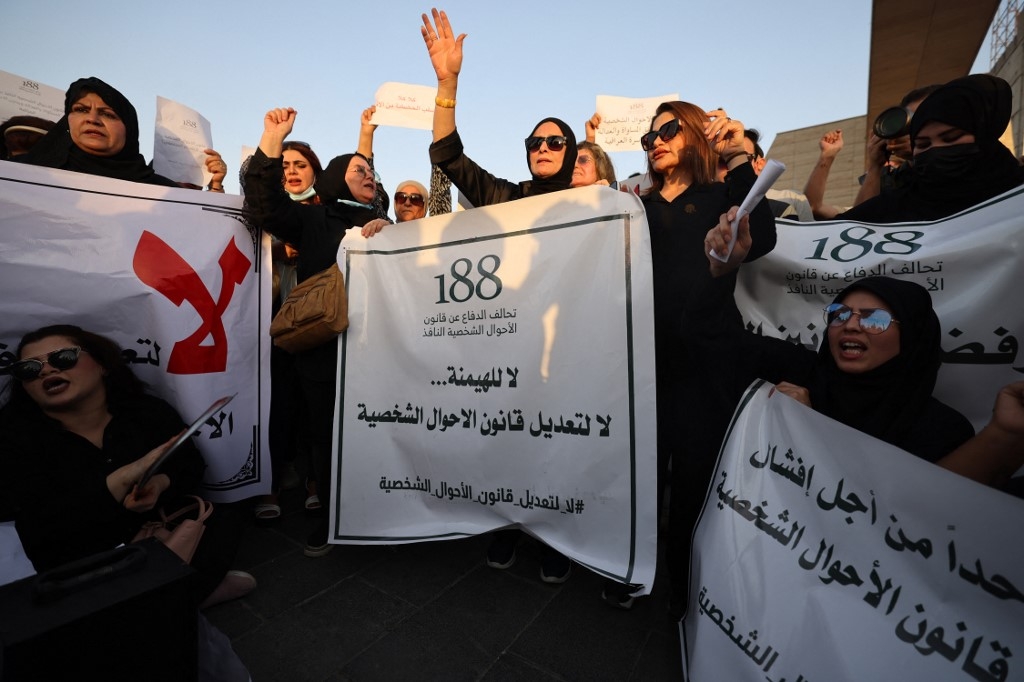
Women's rights campaigners took to the streets across Iraq on Thursday, protesting changes to legislation that could enshrine sectarianism in family relationships and open the door to child marriage.
The demonstrations were organised by Coalition 188, a group of NGOs, politicians and activists opposed to amending the Personal Status law, also known as Law No 188, first passed in 1959.
Protests were planned in Baghdad, Basra, Dhi Qar, Babil, Diwaniyah, Kirkuk and Najaf, as concern grew over the amendments, which have been heavily promoted by the Coordination Framework, a coalition of conservative Shia parties that form the largest bloc in parliament.
Men and women gathered in Baghdad's Tahrir Square on Thursday evening, carrying banners that read "There is no Quranic verse that takes custody away from the mother", as well as "No marriage of minors" and "I am not a slave, I am free".
Inas Jabbar, a board member of the Iraqi Women Network and a member of Coalition 188, said around 500 women and men demonstrated in Tahrir Square.
New MEE newsletter: Jerusalem Dispatch
Sign up to get the latest insights and analysis on Israel-Palestine, alongside Turkey Unpacked and other MEE newsletters
"Protesters in Najaf province were beaten by hardline groups who agreed with the amendments," she told Middle East Eye.
Jabbar described the response to Coalition 188's calls to protest as "excellent", especially given that activists like herself often face threats of violence.
According to a draft of the bill, which had its first reading on Monday, the changes would require a Muslim couple to choose either the Sunni or Shia sect when concluding a marriage contract.
They can then choose that sect to represent them in "all matters of personal status" rather than the civil judiciary.
Although the question of child marriage is not directly addressed in the amendments, previous versions of the bill - typically shelved after public outcry - have been more explicit and legal experts have warned that it could be permitted under Jaafari jurisprudence, an interpretation of religious law followed by some Shia.
Many Iraqi marriages are unregistered and conducted by religious figures, making them illegal under the current Iraqi Personal Status Law.
Twenty-two percent of unregistered marriages, according to the UN, involve girls under 14 and the proposed amendments could see those marriages legitimised by the state.
"The proposed amendments take us back centuries - the Iraqi Personal Status Law is one of the best laws in the region," said Jabbar.
"Therefore, if the amendments are approved this means that we are on the path of leaving the national identity towards sectarian codes, which threatens the social fabric."
'Constants of Sharia'
Last week, the Coordination Framework insisted the amendments were constitutional and did "not contradict the constants of Sharia and the foundations of democracy".
Raad al-Maliki, the MP who proposed the bill, has also pushed back against claims that the bill would lower the minimum age for marriage, calling them "lies fabricated by some out of hatred for applying the provisions of God’s law to those who want them".
The 1959 law was passed under the government of Abdul-Karim Qasim, a leftist nationalist who introduced a number of progressive reforms, including increased rights for women.
However, since the 2003 US-led invasion of Iraq, right-wing Iraqi political parties have attempted to roll back these rights.
Previous versions of the bill have included rules preventing Muslim men from marrying non-Muslims, the legalisation of marital rape and banning women from leaving the house without their husband's permission.
The latest version is considerably less explicit, but campaigners fear its passage would allow religious authorities to introduce these rules through their establishment of the Personal Status code.
The draft requires Shia and Sunni endowments to submit a "code of legal rulings" to parliament six months after ratifying the amendments, stipulating the Shia code would be based on Jaafari jurisprudence.
"All marriages have to be registered as Sunni or Shia by this amendment. Thus, sectarian division enters all households," said Yanar Mohammed, president of the Organization of Women's Freedom in Iraq, another group within Coalition 188.
"Besides, civil courts that file marriage and divorce may become obsolete, and will no longer defend women's rights to alimony, custody of children, or other rights."
Mohammed told MEE that the Coordination Framework and its allies were trying to push these "archaic" laws on Iraqis as a distraction from their own failures, including "huge corruption".
Tamara Amir, another Coalition 188 member, also warned that the changes would have a "profoundly negative impact on the rights and wellbeing of women and children in Iraq".
Unlike previous attempts to pass these reforms, Amir told MEE that she believes the current government - led by Coordination Framework member Prime Minister Mohammed Shia al-Sudani - will succeed in getting it passed, despite Iraqi society being "divided" on the issue.
"They would further entrench gender inequality and put vulnerable individuals at greater risk," she said.
"We urge policymakers to reject these proposals and instead focus on strengthening protections for women and children."
Middle East Eye delivers independent and unrivalled coverage and analysis of the Middle East, North Africa and beyond. To learn more about republishing this content and the associated fees, please fill out this form. More about MEE can be found here.


